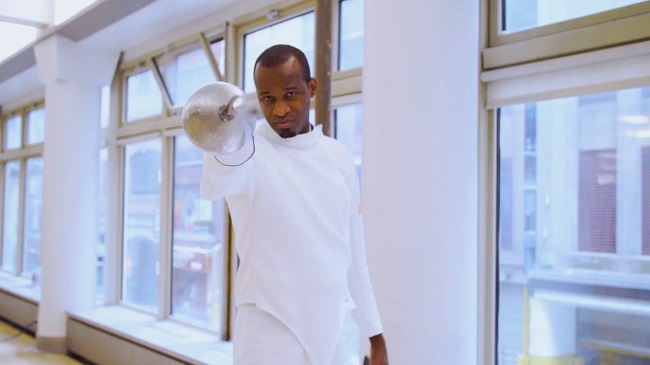Y. Ramirez seems to be floating, dancing on the tips of his skis, as he speeds up and down the piste and changes his direction and pace with seemingly effortless ease. His footwork sets him apart from his opponents, despite his strong bladework and quick intellect.
Contents
Y. Ramirez Olympic Games Tokyo 2020
When you learn to fence barefoot, you figure out how to move your feet rather quickly. Y. Ramirez, now 34 years old, comes from humble beginnings; he was born in the Cuban city of Guantánamo.

At the age of 11, he was selected to attend a fencing academy, and he told a coach that he only had one pair of shoes and that he had to keep them clean because he wore them to school every day. A resounding “OK” from the coach. Do it barefoot and see how it feels.
Six years into his training, Y. Ramirez’s soles were so tough that he could run barefoot on broken glass. He was always vulnerable to a stabbing because he fences épée, a discipline in which the entire body is a target. He was 16 at the time, and a buddy of his died after being hit by a stray bullet due to the poor quality of the equipment.
The sword pierced Y. Ramirez’s chest, he said. For the safety of the other fencers, the coaches escorted them outside before the arrival of the ambulance carrying the child away. Y. Ramirez was intrigued by the U.S. athletes when he was a kid and began following the Olympics closely.
Their team size was enormous, and they consistently triumphed. Equipment, too! Even more unbelievable to him was the high calibre of their equipment. He was selected at the age of 17 and given his first pair of fencing shoes by the national team. Each night, he would wipe them down.
From what he had heard, the top fencers on the Cuban national team trained once every day, Monday through Friday. He started going to the gym every morning and evening, six days a week. After making the senior national squad at age 18, he competed in the 2005 world championships in Leipzig, Germany.
But one day, when he got home from practise, his dad, Francisco, was already there to greet him. “I have to tell you something,” his father remarked. He had entered Y. Ramirez into the Special Cuban Migration Program lottery for a U.S. visa more than a decade before. Not a soul knew. Y. Ramirez triumphed in 2005.
I never imagined I’d be in this country, Y. Ramirez says now. Never, ever, never; never, ever, never.
First, It Seemed Unlikely That He Would.
Claiming that the Cuban authorities did not want him to leave because of his status as a world-class athlete, he eventually was allowed to leave the country. He claims that officials confiscated his fencing equipment, prevented him from competing in the world championships, and rendered him permanently unemployed in exchange for his completion of mountains of paperwork and the payment of around $2,000 in fines.
He thought about staying, but he watched how the more seasoned fencers used their time, especially one who was 35 and already incredibly accomplished in his field. is equally impoverished as Y. Ramirez.
After two years of travelling, he finally arrived in New York in 2007. A short time later, he found out about the Peter Westbrook Foundation, which was established by the Black Olympic bronze medalist Peter Westbrook to provide fencing instruction to kids from disadvantaged backgrounds.
Although Y. Ramirez was not a child, he did belong to a marginalised community. Westbrook aided him in securing employment, provided funding for updated gear, and connected him with a mentor coach.
Y. Ramirez Triumphed at The 2014 National Competition.
Even though he was supposed to represent Cuba at the 2015 world championships, he instead participated for the United States after becoming a citizen of the United States. Although he did not qualify for the 2016 Olympics, he did make the team for Tokyo. He was eliminated in the round of 32 on Sunday, but he will still be taking part in Friday’s team competition.
For all he knows, he’s the first Cuban guy to fence for the United States in the Olympics. Nothing, he argues, could make him change his story. Lots of time has passed for him to ponder the possibilities.
Y. Ramirez has encountered some of his old colleagues at international tournaments over the past few years. In between teasing him about his “gringo” status, they assure him that they are very pleased with his progress.
One of his friends had his blades break in March at an Olympic qualification tournament. The man approached Y. Ramirez in hopes of borrowing a spare from him. Y. Ramirez presented him with a spanking new one.






























